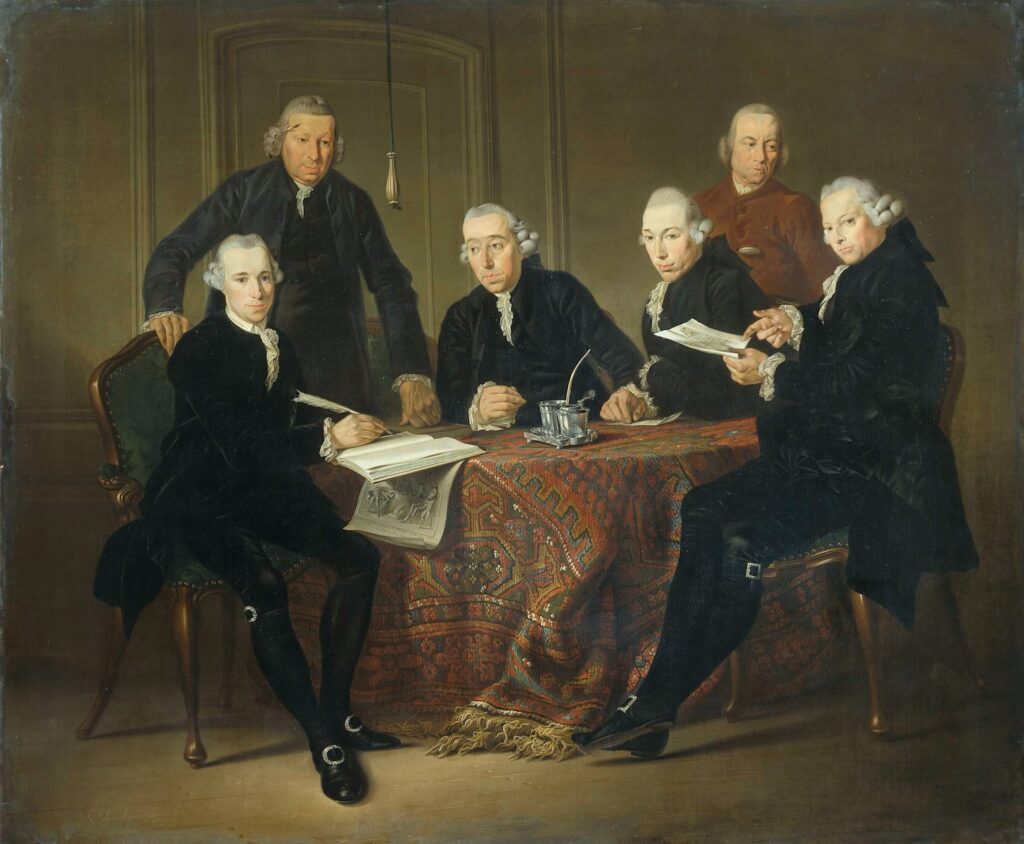
In the tapestry of modern relationships, financial realities often intertwine with deep emotional bonds, creating complex scenarios that challenge conventional legal frameworks. When significant financial shifts occur, such as one partner inheriting a substantial sum after years of shared struggle and support, the fabric of fairness and expectation can begin to fray. This scenario, particularly poignant for unmarried couples, brings into sharp focus the often-overlooked legal vulnerabilities and emotional complexities inherent in partnerships not formalized by marriage. The question of how newfound wealth should be managed, saved, or shared can become a crucible, testing the very foundation of a relationship and sparking a profound showdown over perceived rights and future security.
Unlike married spouses, unmarried partners frequently find themselves in a precarious legal position when it comes to inheritance. The law, historically, has prioritized formalized relationships, leaving those in long-term, committed non-marital partnerships without automatic protections that married couples often take for granted. This fundamental distinction can lead to devastating emotional and financial challenges upon the death of a partner, as the surviving individual may lack legal standing to claim assets, benefits, or even decision-making authority in critical matters. Understanding these intricate differences is not merely a legal exercise but a crucial step in safeguarding one’s future and navigating the unforeseen complexities that can arise when love, money, and legacy intersect.
This article aims to dissect the legal and emotional landscape surrounding inheritance for unmarried partners, drawing on established legal precedents and expert insights. We will explore the critical hurdles non-marital partners face, from intestate succession laws that favor blood relatives to the significant barriers in accessing survivor benefits. More importantly, we will highlight the proactive measures and legal tools available to mitigate these risks, ensuring that individuals can protect their interests and honor their shared commitments, even in the absence of a marriage certificate. By shedding light on these often-misunderstood aspects, we hope to empower individuals to approach their financial and estate planning with foresight and intention, preventing potential disputes and preserving the sanctity of their relationships.

1. **The Precarious Position of Unmarried Partners in Inheritance Law**
For unmarried couples, the distinction between marital and non-marital status is foundational in inheritance law, profoundly impacting a surviving partner’s rights. Marriage confers automatic legal protections, encompassing inheritance rights, various spousal benefits, and crucial decision-making authority in medical and legal contexts. For instance, the Uniform Probate Code typically grants a surviving spouse a substantial portion of the deceased’s estate if they die without a will, a concept known as dying intestate.
Conversely, non-marital partners are often excluded from such automatic recognition unless they are explicitly named in a valid will or estate plan. The legal system has traditionally favored formalized relationships, placing unmarried partners in a vulnerable position. While some legal precedents, notably the Marvin v. Marvin case, have allowed for the enforcement of express or implied contracts between non-marital partners in certain jurisdictions, this recognition is far from universal. Many states still do not acknowledge such agreements, meaning that without proper legal documentation, unmarried partners may have no legal recourse to their partner’s assets.
2. **Navigating Intestate Succession Without a Will**
Intestate succession laws govern how a deceased person’s estate is distributed when they pass away without a valid will. For unmarried partners, this legal framework presents a particularly challenging hurdle, as they are not recognized as legal heirs under these statutes. These laws typically prioritize blood relatives, such as children, parents, and siblings, effectively leaving non-marital partners without legal claims to assets unless they were specifically named in a will or a comprehensive estate plan.
This situation underscores the critical importance of proactive estate planning for unmarried couples. Without a meticulously drafted will, an estate may by default pass entirely to legal relatives, potentially disregarding the deceased’s genuine wishes or the financial needs of a long-term partner. Intestate succession laws often reflect traditional assumptions about familial relationships, which frequently do not align with the diverse and evolving complexities of modern partnerships.

3. **Estate Administration Rights: A Limited Role for Unmarried Partners**
Estate administration, the process of managing and distributing a deceased person’s assets, is typically overseen by an executor or an administrator appointed by the court. For unmarried partners, the absence of a legal marital bond generally means exclusion from this critical process. Priority for serving as an administrator is typically given to close blood relatives or a court-appointed professional, with non-marital partners rarely included in this hierarchy.
In some specific jurisdictions, unmarried partners may petition the court to serve as estate administrators, particularly if no closer relatives are available or willing to undertake the role. However, this process is often legally complex, demanding that the surviving partner demonstrate the nature and longevity of their relationship, as well as their suitability for the administrative responsibilities. This necessity adds an additional layer of legal challenge during an already difficult time.

4. **Accessing Survivor Benefits and Social Security: Federal Hurdles**
Unmarried partners frequently encounter significant legal barriers when attempting to access crucial survivor benefits, such as Social Security. Federal law explicitly restricts these vital benefits to legally married spouses, creating considerable financial hardship, especially for couples who were financially interdependent. This exclusion can leave a surviving partner without a critical safety net they might have relied upon.
For those who do not qualify for common-law marriage, alternative financial planning becomes essential. Proactive strategies like establishing life insurance policies where the partner is named as a beneficiary, setting up joint accounts with clear survivorship rights, or creating trusts can provide much-needed financial security. These measures are crucial to mitigate the severe financial impact caused by the loss of Social Security and other federal survivor benefits.

5. **The Potential of Common-Law Marriage for Benefit Eligibility**
In certain states, common-law marriage can offer a pathway to accessing survivor benefits, circumventing some of the federal restrictions imposed on unmarried partners. A common-law marriage treats a couple as legally married without requiring a formal ceremony, provided they meet specific jurisdictional criteria. These criteria typically include cohabitation, a mutual intention to be married, and presenting themselves to the public as a married couple.
However, establishing a common-law marriage often demands substantial evidentiary proof, such as shared financial accounts, joint property ownership, or publicly acknowledged marital status. It is crucial to remember that common-law marriage is not recognized nationwide, limiting its applicability as a universal solution. For couples residing in states that do recognize it, this legal avenue can offer significant protections and access to benefits that would otherwise be unavailable.

6. **Securing Financial Assets Through Beneficiary and Payable-on-Death Accounts**
Beneficiary designations and payable-on-death (POD) accounts represent powerful tools that allow unmarried partners to secure financial assets directly after a partner’s death, effectively bypassing the often-lengthy probate process. These instruments enable the account holder to explicitly name who will receive funds, ensuring a direct transfer of assets to the designated individual. This mechanism cleverly circumvents intestate succession laws, which would otherwise prioritize blood relatives.
Setting up a beneficiary or POD account is typically straightforward, requiring the completion of specific forms provided by financial institutions, where the intended recipient is clearly named. It is critically important to regularly review and update these designations to reflect any changes in life circumstances, such as new relationships or evolving financial goals. Once properly named, the beneficiary can access the funds relatively quickly after providing proof of death and their identity, offering a streamlined transfer of wealth and peace of mind.

7. **Addressing Housing and Personal Property Challenges for Unmarried Survivors**
Unmarried partners frequently confront significant challenges regarding housing and personal property following a partner’s death. If the deceased partner solely held the lease or the property title, the surviving partner may find themselves without any legal claim or right to remain in the shared residence. In many jurisdictions, landlords possess the legal authority to evict non-marital partners unless specific legal protections, such as domestic partnership agreements or co-ownership documents, are explicitly in place.
Disputes over personal property can also arise, often proving equally contentious. Ownership is generally determined by purchase records or whose name appears on receipts. Without a will or clear documentation outlining shared ownership, the surviving partner may be forced to negotiate with the deceased’s legal heirs. While some states do allow for claims on shared property, such claims typically necessitate robust proof of an explicit agreement or mutual understanding regarding ownership, adding another layer of complexity to an already difficult situation.
The initial shock of a substantial inheritance, particularly when it arrives after years of uneven financial support within an unmarried partnership, quickly gives way to a complex emotional and legal landscape. While the first section of this analysis delved into the fundamental legal vulnerabilities and proactive financial tools available to unmarried partners, the true battleground often lies in the intricate web of human emotions, perceived fairness, and the critical need for communication. This second section will explore these profound relational dynamics, examine advanced legal avenues for recourse, and underscore the indispensable role of dialogue and skilled intervention in forging paths toward harmony amidst potential discord.

8. **Funeral and Memorial Arrangements: A Source of Conflict**
Unmarried partners frequently confront significant emotional distress and limited authority regarding funeral and memorial arrangements. State laws typically grant primary decision-making authority to the next of kin, such as parents or children, often leaving a long-term non-marital partner without formal input regarding the deceased’s final wishes. This can lead to painful disagreements, especially if no written directive exists, highlighting a profound lack of legal standing during a period of intense grief.
Proactive legal planning offers a crucial pathway to mitigate these challenges. Individuals can appoint a designated agent for final arrangements through specific legal instruments like a power of attorney for healthcare or an advance directive. If an unmarried partner is explicitly named in such a document, they gain the necessary legal authority to make decisions about funeral and memorial services, ensuring the deceased’s wishes are respected and alleviating potential family disputes during an already difficult time.

9. **The Emotional Landscape of Inheritance Disputes: Beyond the Assets**
Inheritance disputes are rarely just about the assets themselves; they are deeply rooted in “the stories we tell ourselves about fairness, love, and worth,” alongside “the weight of unspoken expectations and the fear of being forgotten.” When money enters the equation, it often magnifies pre-existing cracks in family relationships, revealing long-held resentments and unspoken grievances. This inherent subjectivity of “perceived fairness” means that what one sibling deems just, another may see as a blatant disregard for their contributions, particularly when quantifying the value of love and labor proves challenging.
Behavioral economics illuminates how emotions like fear, guilt, and the profound need for belonging can cloud judgment, leading to conflict even among those with the best intentions. Understanding these emotional undercurrents is the critical first step toward navigating the complex “inheritance minefield.” Recognizing these underlying feelings can foster more empathetic and constructive discussions, moving beyond transactional considerations to address the deeper relational needs at play and prevent disputes from festering.

10. **The Crucial Role of Open Communication in Preventing Discord**
In estate planning, “silence is the breeding ground for suspicion.” When families avoid discussing inheritance, it creates a vacuum filled with assumptions, anxieties, and resentment, resembling a “financial game of telephone” where rumors distort truth and lead to hurt feelings. This lack of transparency can irrevocably damage family bonds.
The antidote is proactive, open communication. This involves setting clear expectations, sharing your overall philosophy and goals, and explaining the rationale behind specific decisions. It also crucially requires a willingness to listen to feedback, even if challenging. The aim is to cultivate genuine dialogue, not dictate terms. While difficult, these honest conversations about your estate plan, while you are present to clarify intentions, are “infinitely better than the alternative” of future heartache and litigation.

11. **Legal Remedies for Unrecognized Partners: Seeking Justice**
For unmarried partners without traditional legal protections, pursuing justice after a partner’s death often involves specific, yet challenging, legal remedies. Jurisdictions offering domestic partnership registrations or civil unions provide limited spousal-like rights, including potential inheritance eligibility, but require proactive registration as retrospective claims are generally not recognized.
“Palimony,” financial support akin to alimony for non-marital partners, is another option, though recognized in only “a few jurisdictions.” Success requires “proof of an agreement regarding financial support” between partners, demonstrating established financial interdependence. Additionally, if “evidence suggests the deceased intended to provide for their partner” despite a lack of formal will, legal challenges to contest estate distributions or existing wills may be pursued. These avenues, while offering recourse, are complex and underscore the critical importance of comprehensive, proactive estate planning in non-marital relationships to avert such intricate legal battles.

12. **Contesting a Beneficiary: Grounds and Process for Challenging a Will**
When a person passes away, their assets are typically distributed via their Last Will and Testament. However, the validity of a will or the inclusion of a specific beneficiary can be challenged if an interested party believes the will was not created under proper legal circumstances. Grounds include “Lack of Capacity,” where the testator “did not have the mental capacity to understand the consequences of their actions”; “Undue Influence,” if the testator “was coerced or influenced by someone else”; “Fraud,” if someone “intentionally misled the testator”; and “Formalities,” if the will “was not executed properly according to state law.”
The process begins by filing a petition with the probate court, leading to a hearing to review evidence. “The burden of proof lies with the person challenging the will,” requiring them to “prove that there is a legal basis for the challenge.” For example, if a sibling believes they were unduly influenced by another, they must provide evidence to the court. This complex process necessitates guidance from an experienced attorney to protect one’s rights and navigate probate law.

13. **Factors Overriding Beneficiary Designations and Executor’s Rights to Challenge**
Beneficiary designations and payable-on-death (POD) accounts, while designed for direct asset transfer, are not always absolute. “Certain circumstances where the designated beneficiaries may not receive the assets” include “Divorce,” where a former spouse’s designation may be automatically revoked or require updates. “Minor Beneficiaries” cannot legally own assets, necessitating a court-appointed guardian. “Legal Obligations” can also override designations, compelling asset distribution to a child or former spouse even if not explicitly named, as seen in the example where John’s children received life insurance proceeds despite his ex-wife being the listed beneficiary due to his legal obligation to them.
An executor also possesses the legal right to “challenge beneficiary designations in estate proceedings” under specific conditions. Primary grounds are “undue influence,” occurring “when a person uses their power or authority to manipulate the decedent into making a beneficiary designation that does not reflect their true wishes,” and “mental capacity,” if the decedent “lacked the mental capacity to make the designation.” Proving these grounds often requires extensive evidence, like medical records, and is a “difficult and time-consuming process,” as illustrated by John successfully challenging his father’s life insurance designation made while suffering from dementia.

14. **Mediation and the Executor’s Dual Role: Navigating Disputes with Diplomacy**
Despite meticulous planning, inheritance disputes can still arise, especially when emotional attachments meet financial legacies. Mediation can be incredibly valuable” when family tensions escalate, offering a neutral third party to “help families navigate difficult conversations and find common ground.” A skilled mediator acts as a “translator,” helping family members understand each other’s perspectives and collaboratively identify solutions that honor the deceased’s wishes while preserving crucial relationships. The right mediator, experienced in estate planning and family dynamics, “empowers families to find their own” solutions, fostering collaboration over conflict.
Central to the estate settlement is “The Role of the Executor: Referee and Diplomat.” An executor is not just an administrator; they are the figure responsible for “carrying out the deceased’s wishes, navigating legal complexities, and, often, acting as a referee and diplomat between grieving family members.” This role demands meticulous organization, emotional intelligence, and impartiality. “Choosing the right executor is as important as crafting the will itself,” requiring careful consideration of their strengths and family relationships, as selecting the “wrong executor can be like throwing gasoline on a smoldering fire.”
In the intricate dance between love, money, and legacy, the scenario of an unmarried partner supporting another only for a sudden inheritance to shift the dynamic underscores a universal truth: financial transitions, particularly those involving inheritance, are rarely just about the numbers. They are deeply human narratives, brimming with expectations, perceived fairness, and the profound emotional currents that bind, and sometimes fracture, families. For unmarried partners, the journey through inheritance can be particularly fraught, highlighting the historical gaps in legal recognition that often leave them vulnerable. Yet, as we have explored, foresight and diligent planning can act as powerful bulwarks against potential discord.
The strategies we have outlined, from meticulously crafted wills and beneficiary designations to proactive discussions and, when necessary, the thoughtful engagement of mediators, are more than mere legal formalities. They are gestures of profound care—an intentional effort to protect not only assets but, more importantly, the enduring relationships that define a family’s true wealth. By acknowledging the complex emotional undercurrents, embracing transparent communication, and utilizing the robust legal tools at one’s disposal, individuals can navigate these challenging waters with grace. The goal is to build a legacy that transcends financial distribution, fostering understanding and peace among loved ones, ensuring that the inheritance serves as a source of unity, rather than a catalyst for a regrettable showdown.




